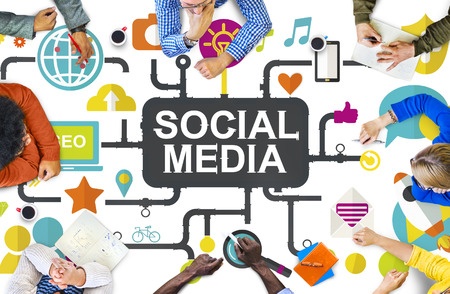What are the SEO benefits of social media? | Weboptim
No one would have thought in 2008 that social media would become so popular in such a short time.
Almost a decade later, Facebook is a social media superpower and Instagram has amassed 700 million users in 7 years.
It's safe to say that everything is very different and the social media landscape is constantly changing, linked to search engines and SEO practices.
But what is this link in 2017?
Social media & SEO = complicated
In the past, Google has made contradictory statements about the role of social media as a ranking factor. On the one hand, they have stated that social media sites are indexed in the same way as other websites, and therefore these social links are also considered links.
But on the other hand, they argued that community indicators are not a direct ranking factor.
It is actually very confusing.
Can we say 100% that social indicators have a direct impact on search engine rankings? Probably not. However, if we look at the influence of social media on search engine rankings, the story could change.
We shouldn't worry that links from social media sites will be valued by Google in the same way as links from high quality and relevant sites. Instead, we should instead look at the benefits of leveraging social media based on the ranking factors that we know are important.
We also need to keep in mind the impact of social media on SERPs. Focusing on a specific "SEO indicator" is an old tactic. SEO today is much more than just keywords and links. Effective SEO works like a holistic, integrated digital marketing campaign.

Link acquisition
The holy grail of any link building campaign. Link earning is an opportunity to gain more links for a single piece of content compared to traditional single link link building.
What's the great thing about social media?
Almost everyone we know has a profile and probably hundreds of contacts. This provides a platform through which content promotion can not only be instantly delivered to hundreds of people, but the more people who engage and interact with the content, the more people it reaches.
Co-citation and co-occurrence
By distributing content socially, you can get your brand across multiple platforms. This in turn can result in more relevant content appearing online, which increases co-citation and co-occurrence.
Brand authority and CTR
Community can be used not only to build awareness, but also to improve brand authority. Sure, people are more wary of a lot of misinformation and social media news compared to previous years, but that doesn't mean that a well thought out, quality social media campaign won't improve your brand in the eyes of the public.
When people start searching for a product, they may directly search for a brand name or terms that are related to the brand. If the brand name is the only one they know in the search results, this can increase click-through rates.
Social media in search results
Social media profiles are available within the SERPs, and real-time information is also available through tweets (provided by Twitter to Google). As a result, social media presence has an impact on search results.
Admittedly, the majority of social links in search results are for brand search terms, but this can vary. Therefore, we need to ensure that brand search terms achieve a high click-through rate.
Ever wondered why a company or person doesn't have a community page? In today's society, where followers, likes and shares affect perception, the impact of social media results in search results should not be underestimated, not only for SERP click-through rates, but also for future conversions.

Will social indicators ever be a direct ranking factor?
Clearly, there are major problems that prevent the use of community indicators as a direct ranking factor. These include the limited access of robots to social platforms and thus to understanding social authority, and the prevalence of fake profiles and purchased likes, which are likely to resemble paid links.
In short, there are currently too many opportunities to manipulate these indicators.
Social media has its advantages
Whether it is Google or Bing search, the use of social indicators as a direct ranking factor is controversial. Social media and search engine optimisation need to work together and provide content.
Don't forget that businesses can benefit directly from social media revenues, whether or not social indicators influence rankings. Social media campaigns should be aggregated primarily to create their own success, with SEO as a secondary consideration.
Source: searchenginewatch.com
WEBoptim has been recognised as a Top Enterprise SEO company by DesignRush